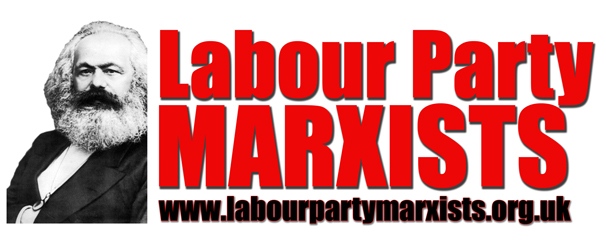- Kingswood, referencing: all
Remove the term and entitlement of Registered Supporters from the Rule Book,
Vote against
Our reason: In general, we’re against the Americanisation of politics and would argue for Labour Party members only to have a vote. But clearly, this is an anti-Corbyn attempt by the right to reverse the changes made in the aftermath of the ‘Collins review’ – which was of course designed to curb the powers of the unions.
- Socialist Health Association, referencing: Clause IV Constitutional Rules, Page 3
Delete all and replace with:
Labour is a democratic socialist party working for a fairer, healthier and more equal society
Vote against
Our reason: Clause IV deserves to be torn up and replaced – but neither this lame alternative nor a return to the Fabian 1918 version are sufficient. We need a commitment to socialism, the rule of the working class, a democratically planned economy and a democratic republic.[1] Labour Party Marxists have drawn up an alternative formulation along those lines.[2]
- Folkestone & Hythe Hendon referencing: Chapter 2, Clause I, Section 4 Membership Exclusions Page 7
Insert new paragraph:
Where a member is responsible for a hate incident, being defined as something where the victim or anyone else think it was motivated by hostility or prejudice based on disability, race, religion, transgender identity, or sexual orientation, the NEC have the right to impose the appropriate disciplinary action from the following options […]
Vote against
Our reason: This is a blatant attempt by the right to continue to use the fabricated ‘Anti-Semitism’ scandal to attack and silence the left. It wants to remove the need for evidence to punish trouble makers: the phrase “something where the victim or anyone else think it was motivated by hostility” is very much open to all sorts of abuse. Guilty until proven innocent.
- Finchley & Golders Green, referencing: Chapter 2 Clause I, Section 4 Membership Exclusions Page 8
Add a new paragraph D, and restyle current paragraph D as paragraph E: A member of the Party engaging in conduct which is motivated by hostility or prejudice based on gender; sexual identity; ethnicity or faith; age or disability; or other personal characteristic, shall automatically be ineligible to be or remain a Party member, subject to the provisions of Chapter 6, Clause 1 below of the disciplinary rules.
Amend Section 8 as follows: insert after first sentence: No member of the Party shall engage in conduct which in the opinion of the NEC is racist, anti-Semitic, Islamophobic, or otherwise expressing hostility or prejudice based on gender; sexual identity; ethnicity or faith; age or disability; or other personal characteristic.
Add at end of last sentence: except in cases of conduct which in the opinion of the NEC is racist, anti-Semitic, Islamophobic or otherwise expressing hostility or prejudice based on gender; sexual identity; ethnicity or faith; age or disability; or other personal characteristic.
Amend Appendix 6, Procedural guidelines in disciplinary cases brought before the NCC as follows:
Insert new paragraph 19, and renumber paragraph 19 as paragraph 20:
- Where a panel has found a charge of conduct that is racist or expressing prejudice under Chapter 2, 4, D, expulsion is required by the terms of the rule unless the panel is satisfied that an unqualified undertaking in the form required by the NEC has been given, in which case a disciplinary measure short of expulsion may be imposed.
Vote against
Our reason: It is true that the rules make no reference to the kind of sexist and racist behaviour mentioned in the amendment. But this gives way too much power to the bureaucrats, including the issuing of lifelong membership bans. It is – again – very much open to abuse, especially the formulation “which is motivated by hostility”.
It would be much more useful to challenge point B in this section, which has been used, for example, to bar from membership former parliamentary candidates for Left Unity and members of the AWL. It states that, “A member of the Party who joins and/ or supports a political organisation other than an official Labour group or other unit of the Party, or supports any candidate who stands against an official Labour candidate, or publicly declares their intent to stand against a Labour candidate, shall automatically be ineligible to be or remain a Party member.”
Why should members of political groups be banned? Surely, if the party is to become a real party of the class (ie, a united front), we need to welcome all those from different political backgrounds.
- Hastings & Rye, referencing: CHAPTER 2, Clause I, Section 8 Conditions of membership Page 9
At the end of Section 8 add: “A member of the Party who in the opinion of the NEC engages in intentional anti-Jewish or racist abuse in public or in writing shall be deemed to have engaged in conduct prejudicial to the Party. Where there is a case to answer within objective criteria and the party’s values, a clear dividing line shall be maintained between
a) investigation to establish the full facts; and
b) informed judgment on their political implications. Hatred of Jews shall not be evidenced by non- abusive words or actions regarding Israel or Zionism that are part of legitimate political discourse. If the Party seeks Jewish or other community views or advice on definitions, these shall be sought from all sections of that community as deemed appropriate, and any alternative views that are offered from that community shall be heard.”
Vote against
Our reason: This would appear to be a well-meaning attempt to oppose the entirely fabricated Anti-Semitism scandal in the party and to base any accusations on factual evidence. However, the motion starts from the premise that the party indeed has an “anti-Semitic problem”, which is palpably untrue.[3]
- Bury South, Chipping Barnet, Hertsmere, Jewish Labour Movement, Manchester Withington, Streatham, Warrington South, referencing: Chapter 2, Clause I, Section 8 Conditions of membership Page 9.
After the first sentence add a new sentence: A member of the Party who uses anti-semitic, Islamophobic, racist language, sentiments, stereotypes or actions in public, private, online or offline, as determined by the NEC, shall be deemed to have engaged in conduct prejudicial to the Party.
Add at the end of the final sentence after “opinions”: except in instances involving antisemitism, Islamophobia or racism.
Insert new paragraph E: Where a member is responsible for a hate incident, being defined as something where the victim or anyone else think it was motivated by hostility or prejudice based on disability, race, religion, transgender identity, or sexual orientation, the NEC may have the right to impose the appropriate disciplinary options from the following options: [same as D]
Vote against
Our reason: This is supported by the Jewish Labour Movement, an affiliate to the World Zionist Movement, which has played a shameful role in the witch-hunt of anybody in the Labour movement who is speaking out against the role of Israel in oppressing the Palestinians. This already tells you that you should probably oppose without even having to read it (though of course we would urge you to do so). Like motion 3, it puts ‘feeling insulted’ first and removes the need to rely on rational evidence.
But it also puts Anti-Semitism (and ‘cleverly’, Islamophobia and racism) above the right to express opinions. Coupled with the proposal to remove any need for evidence, this is a truly anti-democratic motion.
Their full proposal would read: “The NCC shall not have regard to the mere holding or expression of beliefs and opinions, except in instances involving antisemitism, Islamophobia or racism.”
- York Outer, referencing Chapter 2 Clause III, Section 6 Membership subscriptions Page 10
Replace existing Section 6 with: An NEC approved statement shall be produced setting out the basis on which membership fees shall be allocated, including from January 2017 a minimum cash allocation of 10% of each paid up member’s subscription and a guaranteed minimum package of support for all CLPs.
Vote For
Our reason: Currently, CLPs are allocated a ‘minimum’ of a measly £1.50 per member – per year! Clearly, an organisation that encourages local organisation and autonomy should allocate much more.
- Cheltenham, referencing Chapter 3 Clause I, Section 4F Party Conference – delegations Page 12
Add at new sentence at the end of Section 4F as follows: Any exceptions to this rule can only be made with the approval of the NEC or an officer exercising the powers given to them by the NEC.
Vote against
Our reason: This amends the following sentence:
“F. All delegates must have been individual members of the Party for at least 12 months at the closing date set for the receipt of names of delegates (see III.1.E below).“
We believe that this entire section should be scrapped. Full members should be given full membership rights from day 1. This amendment further complicates an already bad situation – and allows ‘special’ members to enjoy special rules.
- Blackley & Broughton Exeter, referencing: Chapter 3, Clause III, Section 2C Party Conference – submissions by CLPs and affiliates, Page 13
At the start of the last sentence delete “Alternatively” and replace by “Also”
Vote For
Our reason: This would allow CLPs and affiliated organisations to submit one rule change motion and one contemporary motion (at the moment, it’s either one or the other).
- Bracknell Burnley, City of Durham, Colne Valley, Solihull, Wealden, referencing: Chapter 3 Clause III, Section 2G Policy documents, Page 13
Amend the first sentence as follows: after “strategy” end the sentence and insert: “Conference has the right to refer back part of any policy document without rejecting the policy document as a whole. Conference shall also consider
Already implemented.
- Brighton Pavilion, referencing: Chapter 3 Clause III, Section 2C Conference Motions, Page 13
Amend the first sentence as follows: delete “contemporary” and delete “which is not substantially addressed by reports of the NEC or NPF or Conference.” and replace the latter with “on a matter of policy, campaigning or Party organisation and finance”.
Amend the second sentence: delete “determine whether the motions meet these criteria and”
Amend the last sentence: delete “contemporary”.
Vote For
Our reason: Currently, the Conference Arrangements Committee and the NEC rule out tons of contemporary motions, because they deal with a subject that is mentioned in the long documents produced by the National Policy Forum. We are strongly against this outsourcing of policy-making to an untransparent and unwieldy forum like the NPF. Conference must become the supreme body of the party. The NPF is nothing but a pseudo-democratic device, invented by Tony Blair, of course, and should be abolished.
- Filton & Bradley Stoke, Newport West, referencing: Chapter 3 Clause III, Section 2H Constitutional Amendments – debated in year of submission, Page 13
Add a new sub-clause 2I at end: All constitutional amendments submitted by affiliated organisations and CLPs that are accepted as in order shall be timetabled for debate at the first party conference following their submission.
Vote For
Our reason: Definitely. It’s an outrage that rule change motions are only debated at conference in the year after they were voted through at CLP level; NEC motions however, can immediately be discussed at conference.
- New Forest East, referencing: Chapter 3, Clause III, Section 2D, Women’s Conference to submit motions to Conference, Page 13
Add a new Section D as follows and re-number rest of Section 2 accordingly:
The annual women’s conference may submit to conference up to two motions not substantially addressed by reports to the NEC or NPF or contemporary motions already put forward as a result of the ballot process.
Vote For
Our reason: At the moment, women’s conference is used mainly as a platform for the likes of Harriet Harman. It has no rights. Of course, a conference of women members should have the right to submit motions to main conference (just like Young Labour should).
- Birmingham Hall Green, Cardiff North, Crewe & Nantwich, Devizes South, West Devon, referencing: Chapter 4, Clause II, Section 2b (i) – Election of Leader – nominations required – Page 14
Replace “15 per cent” with “5 per cent”
Vote For
Our reason: This is the so-called ‘McDonnell amendment’, which would make it easier for left-wingers to stand for the position of leader. (Up until 1988, only 5 per cent of MPs were needed to support a nomination.)
We urge delegates to vote in favour, though we actually think it should be zero per cent. Surely, ‘normal’ Labour Party members should have the right to decide who should be their leader. MPs and MEPs should not have the right to act as some kind of system of ‘checks and balances’ on the democratic will of the membership.
- Bath (and many more), referencing: Chapter 4 Clause II, Section 2B (ii) Election of Leader – incumbent on ballot paper Page 14
Replace existing 2B (ii) with the following:
Where there is no vacancy, nominations may be sought by potential challengers each year prior to the annual session of Party conference. In this case any nomination must be supported by 20 per cent of the combined Commons members of the PLP and members of the EPLP. Nominations not attaining this threshold shall be null and void. In the event that a potential challenger attains the threshold and that an election will take place, the incumbent (Leader or Deputy Leader) will be automatically included on the ballot paper if they inform the General Secretary in writing they wish to be a candidate in the election.
A version of this is already in the 2017 rule book
After the successful court challenge, this following sentence was added to the 2017 rule book:
“The sitting Leader or Deputy Leader shall not be required to seek nominations in the event of a challenge under this rule.”
- Daventry, referencing Chapter 4 Clause III Elections to National Committees – voting system, Page 16
Amend introductory paragraph as follows: Delete “the conduct of” (after “other matters relating to”) and Insert: “which shall be conducted using the Single Transferable Vote system with, where appropriate, constraints to ensure gender balance” at the end of the paragraph. ,
Vote against
Our reason: In general, single transferable vote can indeed be more democratic, as they allow minorities to get elected. However, in this politically fluid situation, the current first-past-the-post system allows the left to campaign to get a whole slate of candidates elected, whereas under STV the left would be more likely to take only a majority. Also, who decides what the “constraints” in terms of gender balance are, for example?
- Caerphilly, referencing Chapter 4 Clause II, Section 2C (vi), Election to national committees and officers – entitlement to vote, Page 14
Delete the words “affiliated supporters and registered supporters” and insert the words “Voting shall be cast in a single section of fully paid Labour members”
Vote against
Our reason: See motion 1 and 18: In general, we’re against the Americanisation of politics and would argue for Labour Party members only to have a vote. But clearly, this is an anti-Corbyn attempt by the right to reverse the changes made in the aftermath of the ‘Collins review’ – which was of course designed to curb the powers of the unions. See also motions 1 and 18.
- Huddersfield, As above
Replace existing sub-clause with: Only paid up members of the Labour Party are entitled to vote in elections for the Leader and Deputy Leader of the party.
Vote against
Our reason: See motion 1 and 17
- Ashfield , referencing: Chapter 7 Clause III, 1A and Clause 1V,1A Rules for CLPs – Affiliated Organisations Page 28
Amend as follows: In sub-clause A, after “subsections of branches” insert “including retired member sections/associations”
Amended 1A would read:
1. Organisations may affiliate to the Party at constituency level if they fall within the following categories:
A. trade unions or branches thereof affiliated to the Trades Union Congress or considered by the NEC to be bona fide trade unions affiliated to the Party nationally. Where provided by the structure of an affiliated organisation, subsections of branches retired member sections/associations may affiliate separately at the discretion of the RD(GS) of the Party in agreement with the appropriate authority of the affiliated trade union Consequential rule change to support the rule amendment – payment of affiliation fees.
Amend Clause IV, 1A as follows: after “branches of trade unions” insert “retired member sections/associations of trade unions”
Vote For
Our reason: Of course, this could be open to abuse by an unelected union bureaucrat ‘representing’ their retired members section.(Remember the Socialist Labour Party’s inaugural conference, when the 3,000 card votes of a phantom organisation of retired miners trumped the couple of hundred of individual members present, making sure Arthur Scargill got his way?[4])
But the left should try to make these organisations real – just because somebody retires from work does not mean they are not interested in the affairs of their union anymore.
- Blackpool North & Cleveleys, referencing: Chapter 11, Clause V Young Labour Rules, Page 39
Add at the end after Sub-clause 3, a new Sub-clause 4 as follows: Young Labour shall have its own constitution and standing orders, to be determined by the Young Labour AGM.
Vote For
Our reason: We agree with much of the motivation by the movers: “The rule would clarify how Young Labour works, increase its autonomy and stop the organisation being beholden to Labour Party staff’s interpretation of the rulebook.
Much of the current rules simply say that the NEC will determine how Young Labour works as it sees fit, with no concrete rules to govern the organisation
.”
- Enfield North, Leyton & Wansted, referencing Chapter 12 Clause IV, Local Campaign Forums, Page 44
Delete all and insert new sub-clauses as follows:
- The membership of the LGC shall consist 75% of delegates from the local CLP(s) and 25% from affiliates. At least 50% of delegates from each group shall be women.
- Additionally, CLP campaign co-ordinators shall be ex officio members of the LGC. Any sitting MP, AM, MSP, MEP, PCC and/or PPC may attend their LGC. Where a Co-operative Party council exists for the area concerned and they sponsor candidates in local elections they shall be entitled to appoint a member to the LGC.
- The LGC shall meet at least four times per year with representatives of the Labour group where one exists.
Consequential amendments – elsewhere replace LCF by LGC.
Vote For
Our reason: The Local Campaign Forum itself was an anti-democratic effort to abolish the much more democratic Local Government Committees (and District Labour Parties), which used to write the local Labour Party’s manifesto and exercised some democratic control over Labour Party councillors (who these days write their own manifesto).
Currently, LCF’s are chiefly run by Labour Party councillors, with the local CLP executives making up the rest. There is almost no input from normal members, let alone much transparency.
- Leicester South, referencing Chapter13, Clauses XIV and XVII Reporting to and consulting with the Party, Page 51
Replace existing Clause XIV, Section 1 with the following:
1. Members of the Labour group are entitled and encouraged to attend meetings of their constituency party and appropriate local party units. The group standing orders shall specify how the group and council leadership including the City Mayor and Deputy City mayor shall report to and consult with the appropriate local party on a regular basis; the leader and deputy leader of the Labour Group, or other Group officer as determined by the Group shall be members of the LCF and its Executive Committee. The party expects the group leadership including the City Mayor and Deputy City mayor to give a minimum of reports and hold a number of policy consultations within the year, to keep the party informed of budgetary and service delivery issues, and other policy areas.
Replace existing Clause XVII, Section 1 and 2 with the following:
1. Labour groups on joint boards, committees, on regional bodies and on local government associations shall adopt appropriate rules and standing orders in consultation with the party’s Local Government Unit and with the prior approval of the NEC.
- The rules contained in Chapter 13 are minimum requirements for the operation of Labour groups and the conduct of Labour councillors including the City Mayor and Deputy City Mayor. Due account must be taken of the resources for member development and the guidance approved by the NEC and of such advice as may be issued from time to time by the NEC.
Vote For
Our reason: The only change here is the addition of “City Mayor and Deputy City Mayor” to the list of those required to “consult” with members. Of course, these should not be able to act as little Bonapartes, but be subject to democratic control by the party.
This so-called “consultation” is however incredibly vague and in reality just means a councillor or MP has to give a monthly report to members, who can question them but have no way to hold their representatives to account or sanction them.
This whole rule should be torn up and dramatically rewritten to make sure councillors, MPs and all other elected Labour Party representatives come under the democratic control of party members.
- Richmond (Yorks) referencing: Appendix 8 Clause III, 1A Membership subscriptions – portion allocated to CLPs, Page 83
Reasoning:
Given that far too small a percentage of the membership fee is allocated to Constituency Labour Parties, we call on Labour Party NEC to increase the share of the subscription that is returned to CLPs to enable more and better campaigning by constituency parties and branches Thus the amendment would read as does the current statement but the figure of £1.50 per member would be increased to £2.50, (and the example given would be changed accordingly.)
Vote For
Our reason: An annual allocation of £2.50 per member to the CLP is still a joke. Even 10%, as in motion 7, is too little. But even a little more is better than the current status quo of £1.50 per member per year.
[1] http://labourpartymarxists.org.uk/three-clause-fours/
[2] http://labourpartymarxists.org.uk/alternative-clause-4-proposed-by-labour-party-marxists/
[3] http://labourpartymarxists.org.uk/anti-zionism-does-not-equal-anti-semitism/
[4] http://weeklyworker.co.uk/worker/535/arthur-scargill-and-the-end-of-a-fantasy/
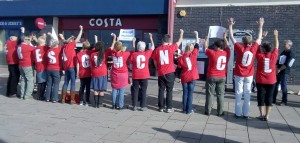
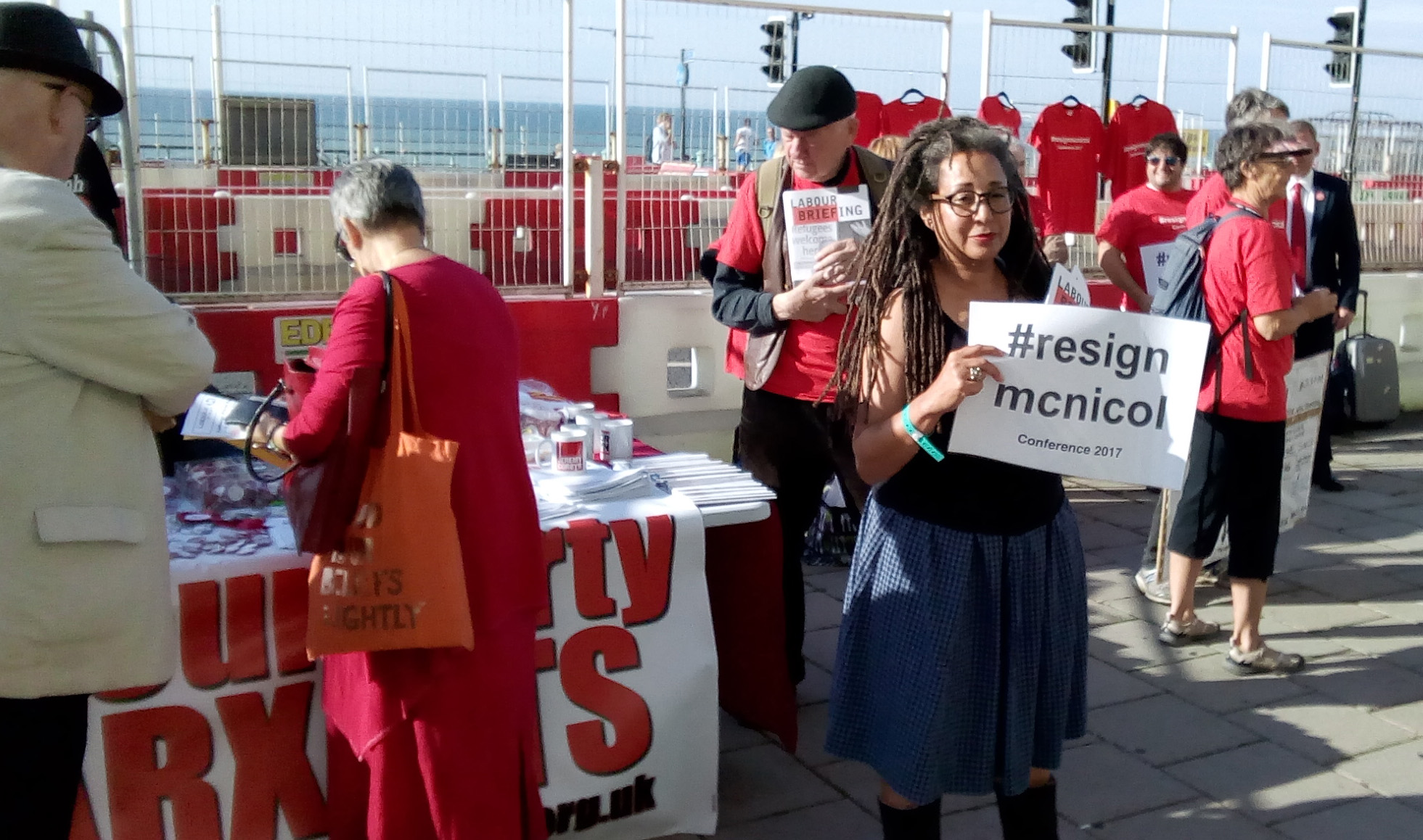

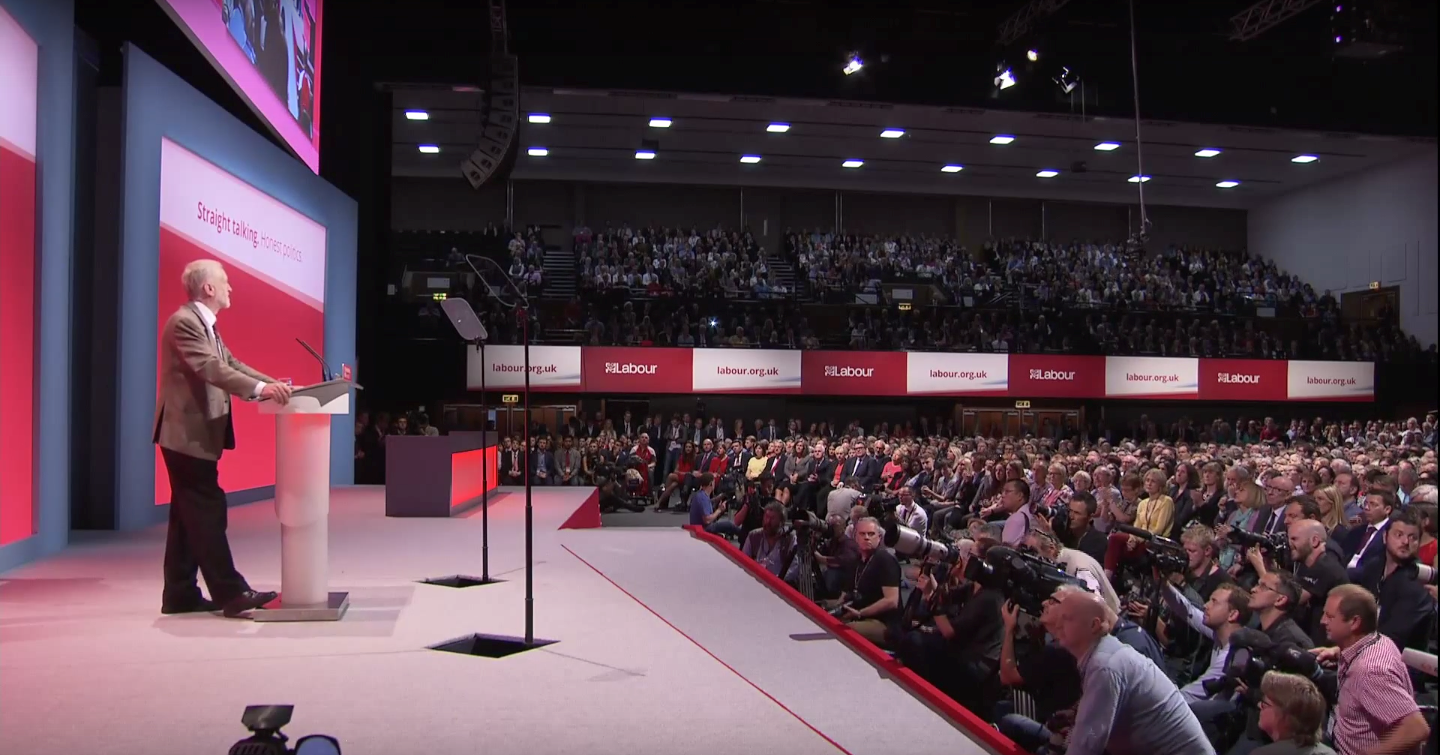

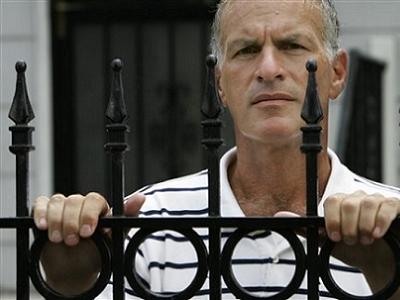
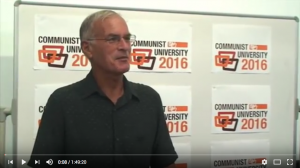
 On the surface, Finkelstein has impeccable credentials to write on the horror of that broke over European Jewry in WWII. Both his mother and father were survivors of the Warsaw ghetto and the Nazi concentration camps. Apart from his parents, every family member was exterminated by the Nazis. In the words of Finkelstein, “My earliest memory, so to speak, of the Nazi holocaust is my mother glued in front of the television watching the trial of Adolf Eichmann (1961) when I came home from school” (p5).
On the surface, Finkelstein has impeccable credentials to write on the horror of that broke over European Jewry in WWII. Both his mother and father were survivors of the Warsaw ghetto and the Nazi concentration camps. Apart from his parents, every family member was exterminated by the Nazis. In the words of Finkelstein, “My earliest memory, so to speak, of the Nazi holocaust is my mother glued in front of the television watching the trial of Adolf Eichmann (1961) when I came home from school” (p5).